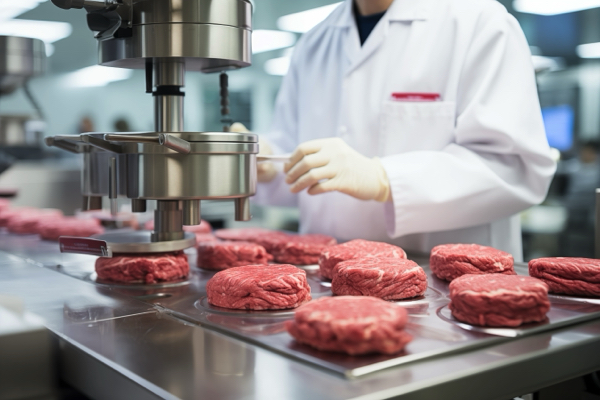
Some of America’s most recognizable food brands have achieved their success on the backs of prisoners at corrections facilities throughout the nation.
While many of us associate forced labor camps with countries like Russia, prison labor plays a significant role in the journey from farm to table for much of the U.S.’s food supply. The Louisiana State Penitentiary, which was once a Southern slave plantation and is now the country's biggest maximum-security prison, is supplying big names like Walmart, McDonald’s and Cargill with meat via prison-raised cattle, according to a two-year investigation by the Associated Press.
This isn’t just an isolated case; the AP reports that similar “invisible webs” tie prison labor to hundreds of millions of dollars of agricultural products and other goods sold in the U.S. They report that it is not unusual for prisoners to be sentenced to hard labor, and those who refuse to work could face punishments like solitary confinement or even risk losing parole opportunities.
The AP identifies a number of popular food items that are produced by prisoners, from Ball Park hot dogs to Frosted Flakes cereal, Coca-Cola and Gold Medal flour. Their products can be found in stores like Whole Foods, Target and Kroger. In some cases, they are exported to other countries, including those whose own products have been blocked from entering America because of their use of prison labor.
One prisoner, Willie Ingram, told the AP about his experience picking okra and cotton on the prison's farm – on the plantation soil where slaves did the same thing decades ago – during his 51 years behind bars in the Louisiana State Penitentiary. The penitentiary houses 3,800 men, more than two thirds of whom are black, and they work for free but can later earn somewhere between 2 and 40 cents per hour in some cases.
He explained how armed guards on horseback watched as dehydrated prisoners passed out while working in the fields in triple-digit temperatures.
The AP traced almost $200 million in sales of livestock and farmed goods to businesses from prison labor, although they say this data is incomplete and the real number may be higher.
Prison laborers do not have worker protections
Some corrections officials told the AP that not all prison labor is forced and that it can save taxpayers in some cases, such as when the prisoners are producing the food that is served in their kitchens. Moreover, they say that prisoners are learning useful skills that can help them find employment when they are released and provides them with an important sense of purpose.
However, critics maintain that prison laborers deserve fair pay, more humane treatment, and the option to choose not to work. Many of them do not have protections traditional workers do, such as workers’ compensation and coverage by federal safety standards, nor do they have recourse when subjected to poor working conditions.
The AP spoke to dozens of current and former prisoners who did this type of work after being convicted of crimes ranging from writing bad checks to murder. Some claim being injured on the job, while others were subjected to sexual harassment. Others, like Frank Dwayne Ellington, died on the job. Ellington was sucked inside a machine in a chicken processing plant, and in his family’s legal battle with Koch Foods, the company claimed he wasn’t technically an employee.
AP contacted some of the companies about the links between their supply chains and prison labor, but many of them denied there was a connection. McDonald’s said it would look into it, while General Mills said that it has a policy restricting its suppliers from using forced labor.
Many Americans are not aware of the connection their everyday foods have to prison labor. Although many people are not opposed to the concept of putting prisoners to work in theory, transparency about which brands are relying on this type of labor and the working conditions is lacking.
In addition to working on vast farms, hundreds of prisons around the country have prisoners doing jobs like fish farming, beekeeping, raising livestock, landscaping and tending greenhouses without workers' protections – and often without pay.
Sources for this article include:
Please contact us for more information.




















